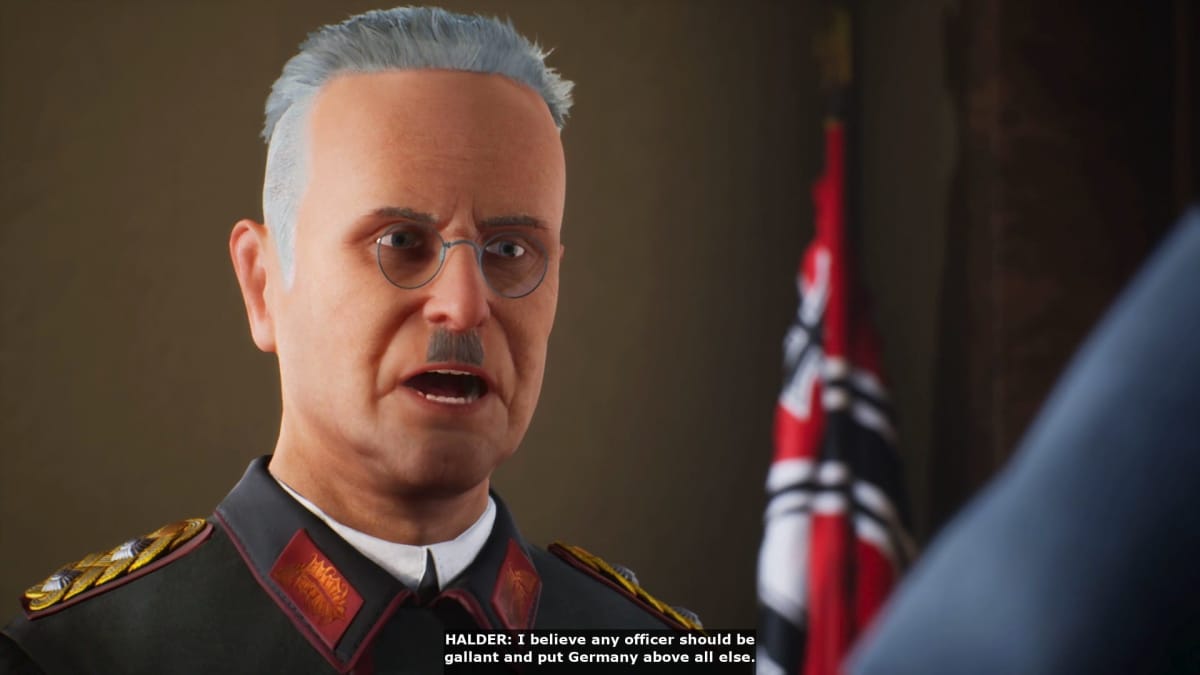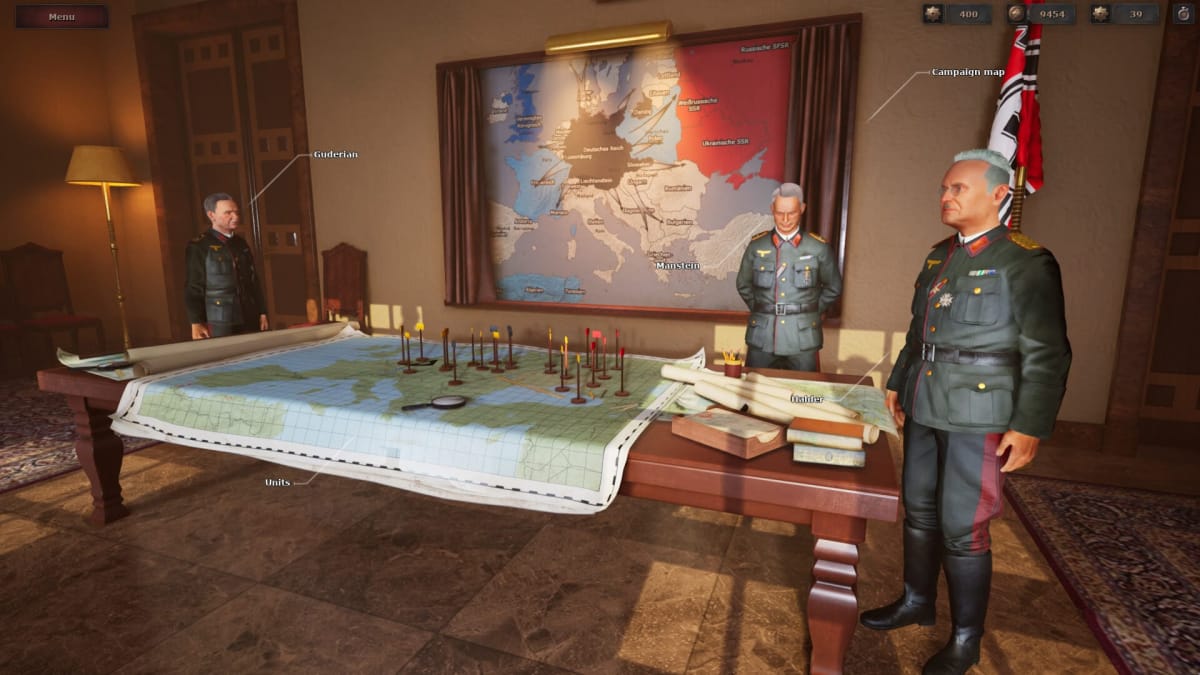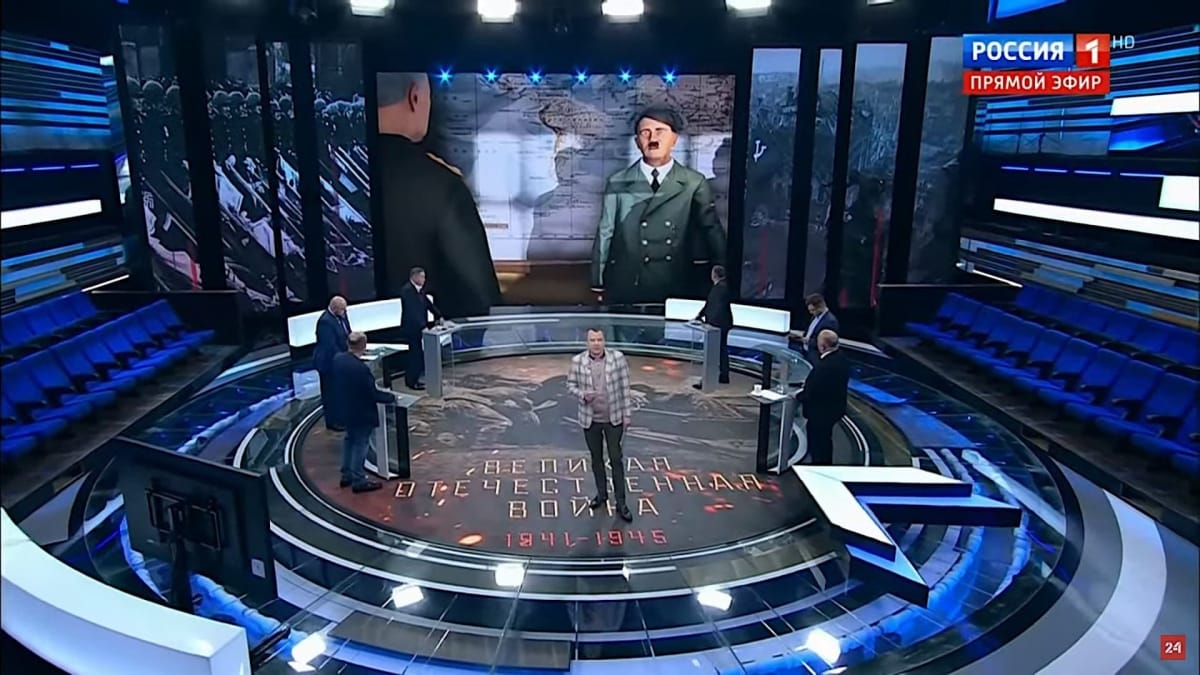The Russian media has launched an assault on World War II alternate history strategy game Strategic Mind: Blitzkrieg for supposedly promoting Nazi propaganda. As a result of the attack, Ukrainian developer Starni Games has been subject to many angry YouTube comments from Russian users, as well as review bombing on Metacritic. We reached out to Starni to get its perspective on this story and will be referring to the response we received throughout.
The original Russian media attack
Strategic Mind: Blitzkrieg was originally launched via Steam on May 22nd. As part of the promotion for the game, Starni Games shared part of a cinematic which depicted Nazi victory in the battle of Moscow. Specifically, the cutscene depicts Hitler overseeing a parade in Red Square after winning an alternate history version of the battle. Russian news media picked up both on the cinematic and on the game itself. A major Russian news outlet predicted that the game would face criminal prosecution for promotion in Russia (please note: many links are in Russian and we've used Google Translate to put them into English, so the translation may be imperfect). Other news outlets discussed the game, claiming it glorifies the Nazis and is anti-Russian propaganda.
It didn't stop there. Starni posted the cinematic to its Facebook page. Facebook then deleted the video, claiming it "violated community rules against prohibited people or organizations", according to Starni. The developer also began receiving angry comments on its videos from Russian users sympathetic to the media's perspective. Negative reviews also began appearing on Metacritic; at time of writing, there are 14 negative reviews for the game, most of which don't have text attached to them.
Starni Games' rebuttal

Starni Games itself points to other examples of alternate history narratives such as The Man in the High Castle and Command and Conquer: Red Alert. The developer says it "just wanted to show what could have happened" if the USSR had lost the Battle of Moscow. Naturally, Starni says its game doesn't promote Nazi ideology. According to Starni, games like Strategic Mind: Blitzkrieg actually "have the opposite effect"; by helping us to remember history and showing us how things could have been, they make us glad that the Nazis didn't win.
Some of the suspicion may have come from the fact that Starni's game only depicts World War II events from the German perspective. The previous game in the series, Strategic Mind: The Pacific, showed events from both the American and Japanese sides. Starni says that the German campaign in Blitzkrieg is "bigger than both the US and Japanese campaigns combined" from The Pacific, which is why Blitzkrieg only features the German side. There are plans to create games revolving around both the USSR and the Allies in future.
Strategic Mind: Blitzkrieg and politics

We asked Starni if it thought maybe the controversy had arisen due to the decision to depict Nazi soldiers struggling with aspects of ideology and orders they receive. Starni says that "war is an extension of politics" and that without historical context, war games would be "untrue to history and hypocritical". Strategic Mind: Blitzkrieg is intended to be an "immersive experience" that shows players "all stages of the war", so showing the emotions of characters - including Nazis - provides "a much better understanding of the whole epoch".
Starni says that it won't be changing Strategic Mind: Blitzkrieg or any of its future projects as a result of the Russian media's attention. The developer says its position is that "freedom of creation and speech must be kept at all costs", as long as they conform to the law. Starni doesn't think its approach to game design was what caused this controversy and will continue to work on projects as it's always done.
What do you think of the controversy surrounding Strategic Mind: Blitzkrieg? Let us know in the comments below!







